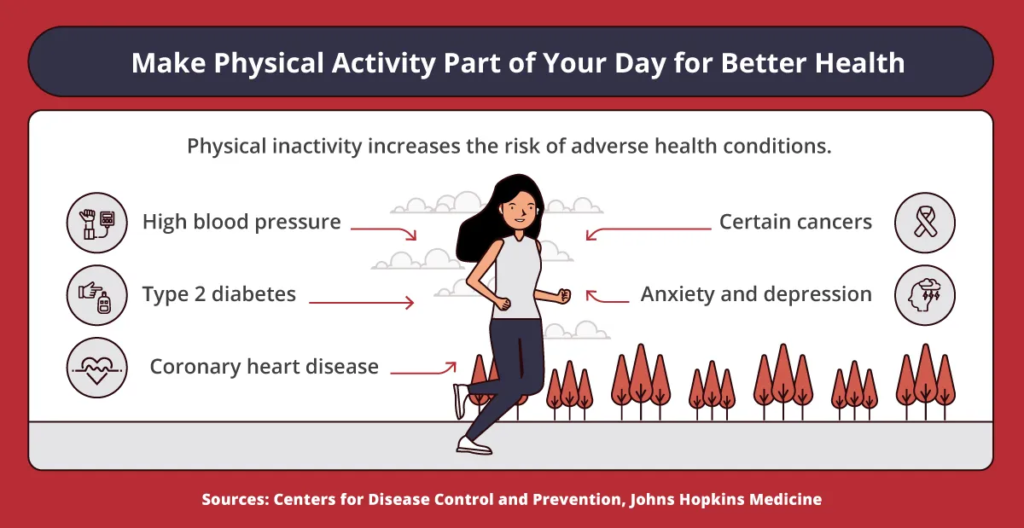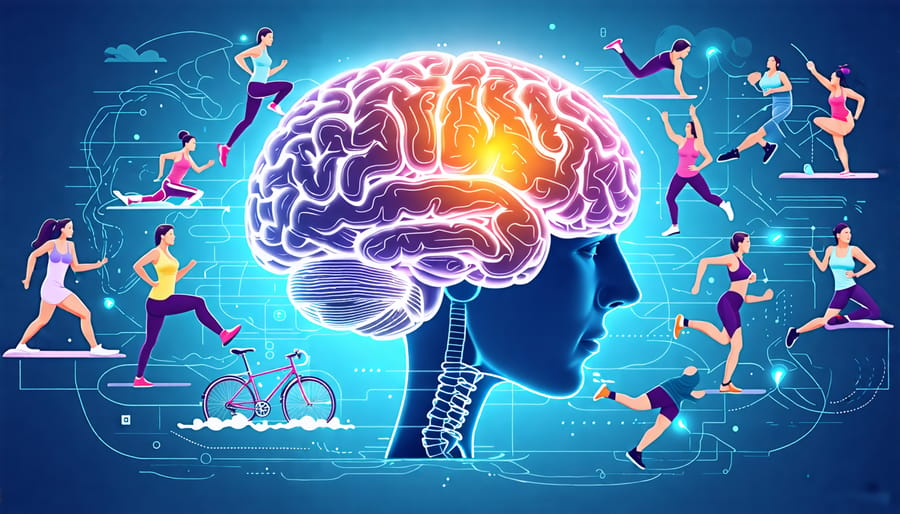Introduction
We all know that exercise is good for the body, but did you know that it can also work wonders for the mind? In today’s fast-paced world, mental health challenges like stress, anxiety, and depression are more common than ever. While there are various ways to manage these issues, one of the most powerful tools is often overlooked: exercise. Whether it’s a quick walk around the block or a full workout session at the gym, exercise can significantly improve mental health. Let’s explore how!

The Science Behind Exercise and Mental Health
Exercise and mental health are closely linked. When you exercise, your body releases chemicals called endorphins, which act as natural mood lifters. These endorphins interact with receptors in your brain, reducing the perception of pain and triggering a positive feeling in the body. Regular physical activity also helps regulate levels of serotonin and dopamine, two neurotransmitters associated with happiness and well-being.
Additionally, exercise reduces levels of the body’s stress hormones, such as adrenaline and cortisol, helping to create a calmer, more relaxed state of mind. The benefits of exercise go beyond just the short-term “feel-good” factor; consistent exercise can improve your overall mental health, making you more resilient to stress and challenges.

How Regular Exercise Benefits Mental Health
Here are some of the key mental health benefits of regular physical activity: click here
1. Reduces Anxiety
Exercise is a natural remedy for anxiety. Engaging in physical activity can help you manage the tension, worry, and fear that comes with anxiety disorders. It does this by boosting the brain’s sensitivity to serotonin and norepinephrine, which help regulate mood and stress. Physical activity can also act as a form of distraction, allowing you to break the cycle of negative thoughts that feed anxiety.
2. Battles Depression
Research shows that regular exercise can be as effective as antidepressants for some people. Physical activity encourages the growth of new neural connections and releases endorphins, both of which can improve your mood and act as a buffer against depression. The feeling of accomplishment after completing a workout, combined with the positive social interaction often involved in group exercise, adds to its depression-fighting properties.
3. Enhances Cognitive Function
Exercise doesn’t just keep your body in shape—it sharpens your mind, too. Regular physical activity improves memory, focus, and critical thinking. It increases the size of the hippocampus, the part of the brain responsible for memory and learning, which can help prevent cognitive decline as we age.
4. Improves Sleep
Sleep and mental health are deeply intertwined, and exercise can improve both. By helping you fall asleep faster and improving sleep quality, regular physical activity ensures that you wake up feeling refreshed and mentally alert. The link between exercise and better sleep is particularly strong for those who struggle with insomnia or other sleep disorders.
5. Boosts Self-Esteem and Confidence
One of the most overlooked mental health benefits of exercise is its ability to boost self-esteem. As you work out and start to see improvements in your physical abilities and appearance, you develop a sense of accomplishment. This confidence can translate into other areas of your life, improving your mental well-being and sense of self-worth.
Best Types of Exercise for Mental Health
Not all exercise is created equal when it comes to mental health benefits. Here are some types of physical activities that can specifically help boost your mental well-being:

Aerobic Exercise (Cardio): Running, swimming, cycling, and brisk walking are excellent ways to get your heart pumping and trigger endorphin release. Cardio can also help lower stress hormones like cortisol, promoting a feeling of calm.
Yoga and Pilates: These practices combine physical movement with mindfulness and breathing exercises, making them perfect for reducing stress and promoting relaxation. Yoga, in particular, has been shown to lower levels of anxiety and depression.
Strength Training: Lifting weights or doing bodyweight exercises doesn’t just build muscle—it also enhances your mental strength. Strength training has been linked to reduced symptoms of anxiety and depression, as well as increased self-confidence.
Walking or Hiking: Sometimes, the simplest activities can have the most profound effects. Taking a walk, especially in nature, can clear your mind, boost creativity, and reduce feelings of anxiety and stress.
How to Make Exercise a Part of Your Routine
Incorporating exercise into your daily routine doesn’t have to be complicated. Here are a few tips to help you get started: click here

Start Small: If you’re new to exercise, start with something manageable, like a 10-minute walk or a short yoga session. Gradually increase the time and intensity as your fitness improves.
Set Realistic Goals: Rather than aiming for perfection, focus on consistency. Even small amounts of exercise—15 to 30 minutes a few times a week—can make a big difference in your mental health.
Find What You Enjoy: The best form of exercise is the one you’ll stick with. Whether it’s dancing, hiking, cycling, or swimming, choose activities you enjoy so you’ll look forward to doing them regularly.
Mix It Up: Varying your routine can keep things interesting and prevent burnout. Try combining different types of exercise, like cardio one day and yoga the next.
Conclusion
Exercise is one of the most effective ways to improve mental health, and it doesn’t take a lot of time or effort to see results. Whether you’re looking to reduce anxiety, fight depression, or boost your mood, regular physical activity can transform your mental well-being. So, lace up your sneakers, find an activity you enjoy, and start reaping the benefits of a healthier mind and body today.
Call to Action
How has exercise improved your mental health? Please share your experiences in the comments below, and let’s inspire each other to keep moving for a healthier mind!






